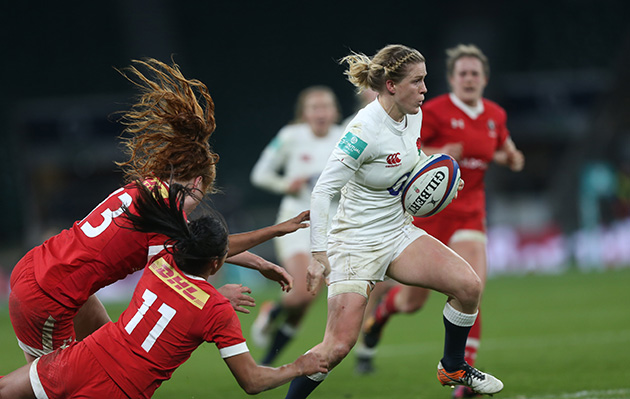The Exeter Chiefs and England wing explains how to be industrious off the ball
Jack Nowell: How to up your wing work-rate
Jack Nowell is renowned for his work-rate in matches. It’s a trait that has earned the Exeter Chiefs wing more than 30 England caps, including playing in two World Cups, as well as selection for the British & Irish Lions, for whom he made two appearances off the bench against New Zealand in 2017.
So if you want to get more involved in the game, here are his top tips on increasing your work-rate out wide…
Time it right
“I’ve always been someone who wanted to get stuck in, even from the wing. Sometimes I’ll wait for the gap to open and sometimes I’ll use footwork to move the defenders around – and when you go into that gap you want to explode through it.”
Learn from experience
“The best way to learn when to work off your wing is to play matches. The more you play and experience different things, the more you’ll see when to come in and when to stay out.”
Take cues from others
“When looking to go and hunt for the ball, it’s about working out a couple of phases ahead. That comes from understanding your phase play and who calls things – what the centres and scrum-half do, for example – so you know when to pitch in.”
MORE SKILLS ADVICE…
Beauden Barrett: How to mix your kicks
All Blacks fly-half Beauden Barrett, the World Rugby…
Danielle Waterman: How to sidestep
England Women’s full-back Danielle Waterman gives her top…
Matt Toomua: How to find space at centre
The Australia back offers tips on exploiting space…
Stay put in certain situations
“If the ball is being spread along the line in the 22, you should be on the wing to get on the end of that movement. You don’t want any front-rows or second-rows there – you want wingers on the wing to finish off the try. It’s the same in defence, when you should be on the wing – you don’t want to leave any forwards there by themselves.”
This article originally appeared in the February 2018 edition of Rugby World magazine.
Every month Rugby World features advice from professional players and coaches on specific skills.
Follow Rugby World on Facebook, Instagram and Twitter.








